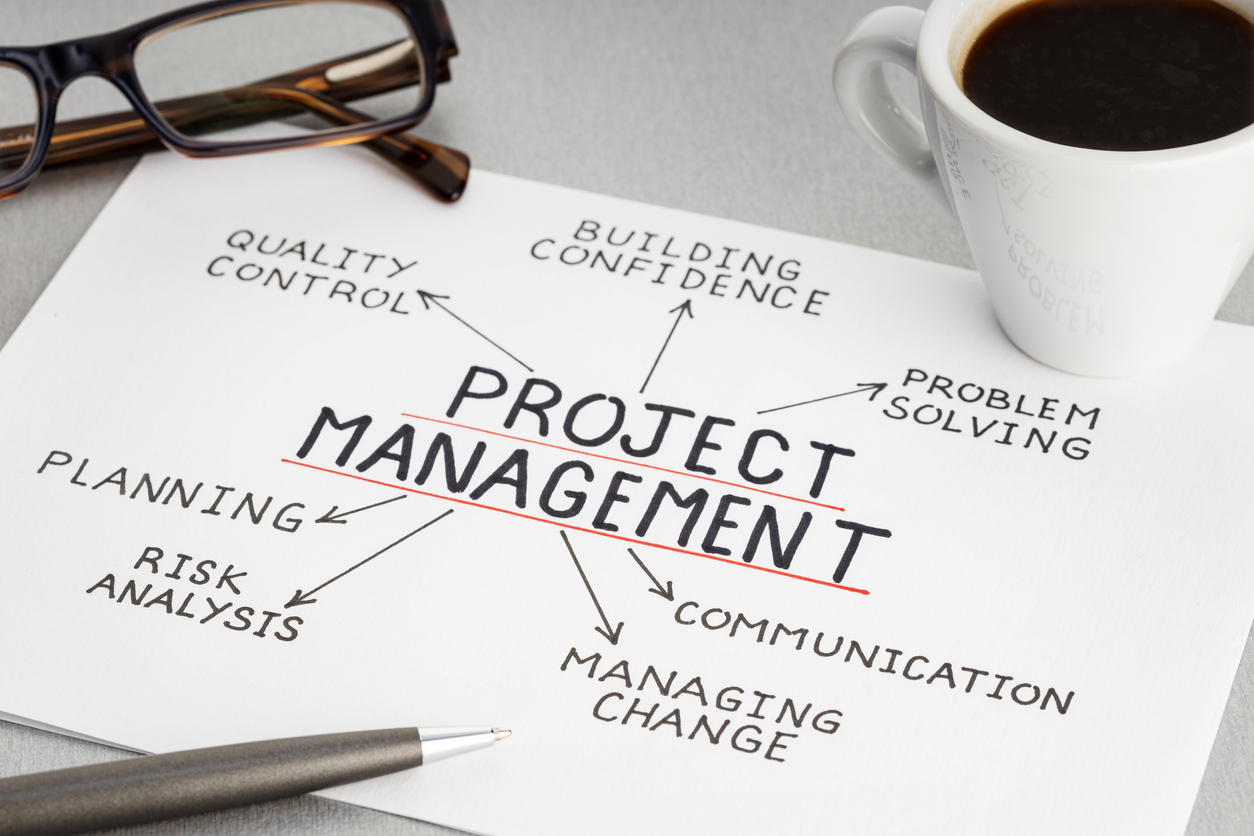As the second part of The Doyle Group’s Project Management panel series, they hosted a discussion in their online community, The briDGe. Created and sponsored by The Doyle Group, this community aims to bring together top IT professionals to ignite connections among those on the same path, to create opportunities for success inside the community, and to empower members to make an impact in their careers.
Part two of “Achieving Success in a Project Management Career” was moderated by Doyle Group founder Andrew Doyle. Expert panelists included:
- Lori Shepherd, Principal, Master Mind Consulting
- James McCoy, President, PMI Mile Hi chapter
Below, we have compiled some of the key highlights shared by our expert panelists:
Key Takeaways
In an increasingly competitive job market, what do hiring managers and organizations look for when selecting candidates for project management positions? Are there certain attributes or experiences that stand out?
Organizations in need of project managers are always looking for “the complete package” — a candidate who has experience in project management, experience in budgeting and finance, strong organization skills, and so forth. Perhaps the number one skill that a candidate must possess is the ability to communicate effectively. Good communication is the glue that can hold a project together.
One way that candidates can demonstrate their communication skills is through a cover letter. They shouldn’t be afraid to get creative with the cover letter; rather, they want it to grab the hiring manager’s attention appropriately. Also, candidates should not feel intimidated about directly expressing their interest in the position or sharing what makes them qualified for the role. Another best practice is to ask the point of contact at the company how they can progress through the hiring process.
What are some key strategies or tips for professionals looking to advance their careers in project management? How can project managers stay current with industry trends and emerging methodologies to remain competitive in their careers?
Relationships are key in advancing a project management career. Project managers are much more likely to enjoy steady employment if they build up trust with their clients over time, develop technical or specialized skills, and hold themselves accountable for their decisions. Having a mentor outside of a candidate’s organization can provide them with an objective perspective when they get into difficult situations. Networking is also an important part of staying competitive in the market.
How important is mentorship in project management, and what advice would you give to those seeking a mentor or interested in being a mentor to nurture their project management careers?
A good mentor isn’t someone who will just give a project manager the occasional “pat on the back.” Rather, a good mentor will provide objective feedback — feedback which may sting at times. However, such feedback can provide the impetus for the project manager to improve and ultimately become more successful in the long run.
Professional organizations (like PMI) can be a good place to start looking for a mentor. They already have a robust network in place, and will likely have some kind of process for mentorship opportunities. Of course, project managers don’t need to join a professional organization to find a mentor; if they already know and respect someone in the field, they can simply ask that person if they’d be willing to mentor them.
How can project managers use professional organizations and associations to accelerate their project management careers? What benefits do these organizations offer in terms of networking, learning, and professional development?
Besides the mentorship opportunities professional organizations and associations may offer, they provide an excellent way to network with professionals from various walks of life, backgrounds, industries, and experience levels. These organizations often help members to take advantage of educational programs at little to no cost and offer many other ways to develop professionally, such as volunteer and career advancement opportunities. Moreover, joining a professional organization is also helpful in terms of recognition: it shows that candidates are truly vested in project management.
What role does emotional intelligence play in project management?
Emotional intelligence is a vital attribute for a top-notch project manager. Project managers need to be able to “read the room,” negotiate, influence people, win friends, and help team members stay in a psychologically safe environment. In fact, candidates with high emotional intelligence but less experience may be more appealing to hiring managers.
With changes in project management and various methodologies, what are the benefits of Agile versus Waterfall? And what environments are better suited for each?
It’s important to note that Agile and Waterfall are not necessarily mutually exclusive methodologies. Agile is perhaps more focused in terms of technology-based deliverables, while Waterfall may be more suited to certain types of projects, like government contracts or construction. Many companies function with a hybrid approach that melds the two methodologies.
Could you share your experiences with managing multiple stakeholders? How do you advise PMs to prioritize to ensure success?
Lori’s experience has taught her that it’s vital for team leadership to think in terms of organizational benefit, rather than fighting for their department’s budget regardless of other considerations. Project managers need to clearly identify the top priorities for achieving the desired outcome, from one stage of the project to the next, and then facilitate productive conversations across departments — even when one team has to give up some money to ensure another team’s success.
James shared the benefit of using tools to manage multiple stakeholders, such as spreadsheets. It’s important to organize the relative importance of multiple stakeholders, along with key data such as their needs, their wants, how to communicate with them, etc. He also mentioned that candidates who want to further their career shouldn’t be afraid to ask for difficult projects, since they are great opportunities for learning how to handle challenging situations with multiple stakeholders.
Risk management is a critical aspect of project management. How can project managers effectively identify and mitigate risk in projects?
It’s helpful for project managers to track risk through the use of tools, such as RAID (Risks, Assumptions, Issues, Dependencies) management software. Project managers should also “pull risk forward” to the extent possible and attack any unknowns at the outset since those are the things that could catch up with a project manager in the end.
If you’d like to learn more about the benefits of investing in a project manager or want to further your career in project management, reach out to our team at The Doyle Group today to begin the conversation. We’d be glad to answer any questions you may have! In addition, you can view the recording of the panel discussion here; and if you’re interested in joining the briDGe online community, you can submit a request here.







